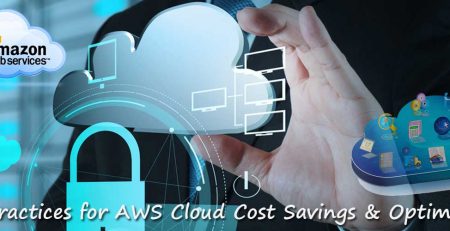What is DevOps ? How to build DevOps Skills
What is DevOps?
DevOps is basically a combination of Development (Dev) and Operations (Ops), where software developers work alongside with server operations team following certain tools and best practices to automate business application. Development needs no explanation as it’s a process of building technology application which requires planning, designing, development, delivery and operations. DevOps engineers work in collaboration with App Developers, System Operators (SysOps), and other production IT members to manage and supervise code releases. Understanding DevOps in a simpler way is, DevOps is a team who works in co-ordination with the development team to deploy infrastructure solutions which are robust, stable and scalable as per the business needs.
How to build DevOps Skills?
DevOps skills requires lot of practice and hard work with good understanding of the required skills mentioned below. However, if you are not it’s never too late to learn. Here is the perfect roadmap to start your DevOps journey. So why wait? Start learning now.
Linux Fundamentals and Scripting.
Linux fundamentals means having good understanding on command line along with bash or shell scripting. You can also explore learning other programing languages like python, ruby or JavaScript. However, python is highly recommended.
Hands on with System Administration
System administration is the core expertise that is required to become a professional DevOps engineer. Good understanding of operating system concepts, networking, hardware devices, critical services like web, database and email administration is required. Knowledge of windows administration is additional advantage in your skill set.
Network and Security
Continuing further with system administration, networking and security is part of system administration and equally important to know advance knowledge of networking. Good understanding of TCP/IP fundamentals, Protocols like DNS, HTTP, HTTPS and SSL is a must.
Server Administration
System administration is typically when you are dealing with the operating systems like CentOS, Ubuntu, Debian etc. Server administration is when you setup, install and configure the host operating system with server functionalities like web server, dns or database server to meet end user demand.
Some of the following open source and commercial version software’s are very popular.
Web Server – Apache, Nginx, Litespeed and Windows IIS are popular web servers.
Caching Server – Caching servers like Redis, Memcache are very popular and used with web servers to provide caching, performance and speed.
Database Server – Database server can be identified as SQL & NOSQL. Depending on your application there are multiple options to select database server.
NO SQL– MongoDB, AWS DynamoDB, Cassandra, Google Data store are mostly used as NO-SQL server.
SQL – Most popular SQL server today is Mysql, however you also have options like MariaDB, PostgreSQL and OracleDB.
Infrastructure as a code.
Now here come the actual technologies that shows your real DevOps skills.
Infrastructure as Code practice encourages the provision and management of the infrastructure using scripts and development techniques like version control, continuous integration etc.
Here are some tools and platform that can help to provision infrastructure as code.
Configuration Management – Ansible, Puppet, Chef and Salt Stack.
Container & Orchestrators – Docket, LXC – Kubernetes, Open shift, Docker Swarm.
Infrastructure Provisioning – AWS Cloud formation, Azure Template, Google Deployment Manager.
CI/CD – Continuous Integration and Continuous Deployment.
To successfully implement the DevOps approach, DevOps Engineers must be well-versed in the best practices of DevOps methodology, which include:
Continuous Integration – This practice requires developers to integrate their code into a central repository like Git Jenkins, after which it runs the automated builds and tests. Jenkins is one of the most popular open source CI/CD tool.
Continuous Deployment – This practice is about automatically submitting the changes done by a developer from the repository to the production process. AWS Codepipeline, Bit bucket Pipeline
Monitoring and Logging
Monitoring and logging plays a vital role in understanding your application performance. Monitoring probes and measure the core metrics of applications and infrastructure and see how their performance affects the user experience.
Here are some of the server monitoring and logging software’s that you need to learn.
Monitoring – Nagios, Zabbix, Prometheus, Grafana, DataDog & New Relic
Logging – ELK ( Elastic Search & Kibana ) is a combined log management and analytics solution to monitor infrastructure. Graylog and Splunk which is a widely popular multipurpose data platform tool.
Cloud Infrastructure Platform.
Today there are three world wide cloud companies i.e AWS, Azure and Google Cloud. As a Devops professional you should have excellent technical understanding of cloud infrastructure service offerings by each of these providers. Usually, they all are almost similar with different name and alias used for similar type of services. Being a certified cloud engineer will demonstrate your capabilities of building quality infrastructure on cloud.
In-depth knowledge and working experience in compute virtualization, automation, and DevOps methodologies.
Proficiency in environment management (Linux/Unix, Windows, Shell Scripting, Ansible, Chef, Puppet, etc.)
Proficiency in coding and experience in Software-Defined Data Centers maintenance.
Proficiency in writing and maintaining deployment scripts.
Expertise in managing nodes and diagnosing application services and server/ network issues.
Final Conclusion about DevOps?
The primary aim of adopting the DevOps method is to ensure that project operations align well with application development processes to achieve the highest level of optimization and project delivery. DevOps consists of tools, practices, and culture of integration and automation of different processes between the IT and application development teams. Companies aim to achieve better standards of team empowerment, collaboration, cross-team communication, and technology automation through this approach. Also, the operations and development teams often merge into one team where professionals are involved throughout the entire project lifecycle and possess multidisciplinary expertise.







